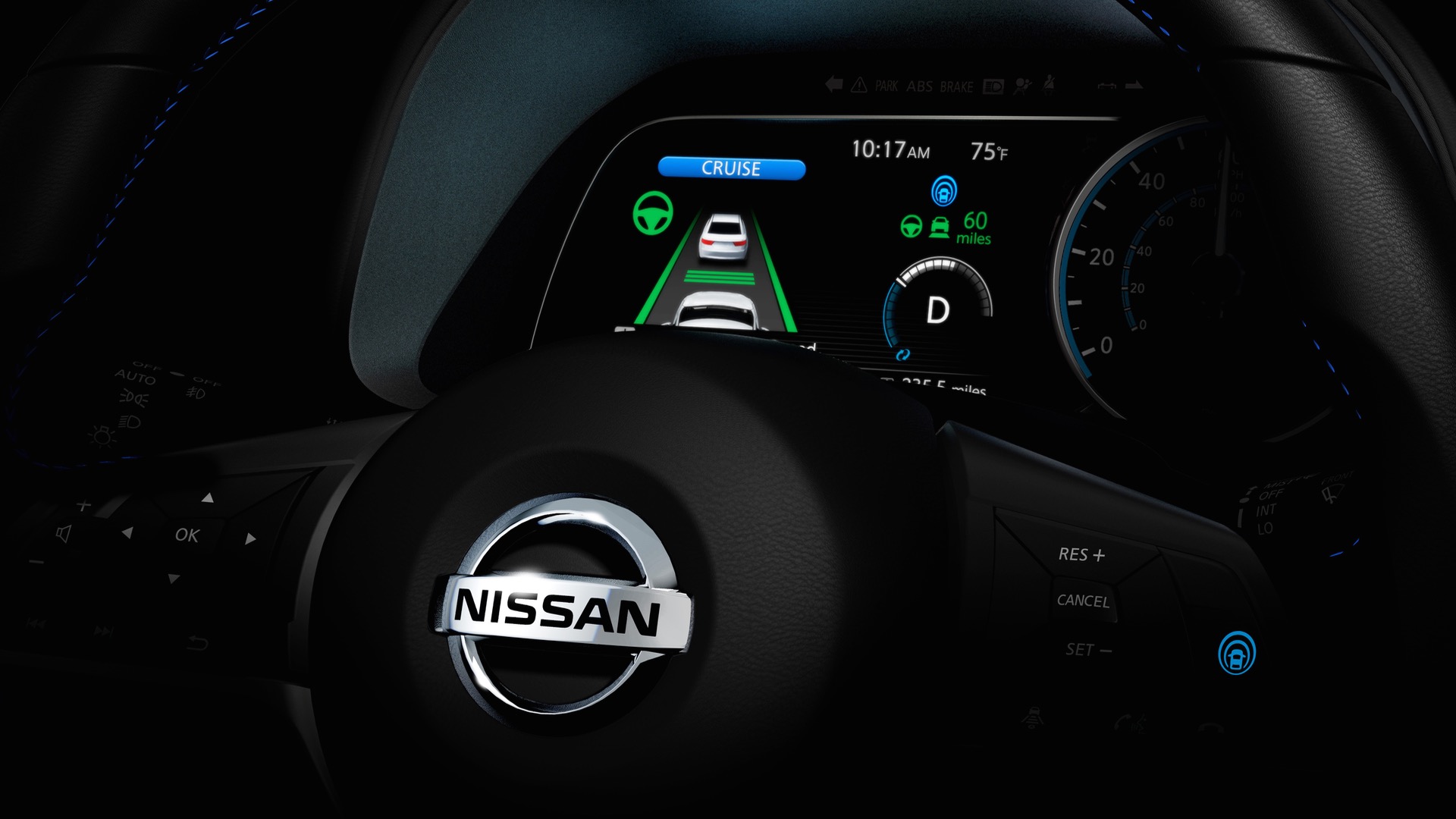

Earlier this year, Nissan announced that the next-generation Leaf will be its first U.S. model to get ProPilot driver-assist tech, which the automaker views as a stepping stone to full autonomy. While the new Leaf won’t appear until later this year, we now have a better idea of ProPilot’s capabilities.
In a teaser for its redesigned electric car, Nissan said the Leaf’s ProPilot system will be able to help “control acceleration, braking, and steering during single-lane driving on the highway.” That seems to put this version of ProPilot in the same category as highly-automated driver-assist systems like Tesla’s Autopilot, Cadillac’s Super Cruise, and the traffic-jam assist feature in the next-gen Audi A8.
The limited autonomy offered by these systems shouldn’t be confused with fully-autonomous driving, but automakers believe this tech can help them to develop self-driving cars. Much of the hardware can be applied to fully autonomous cars, and data collected from onboard sensors can be used to improve the software controlling those cars. Nissan has entered into a partnership with Mobileye to do just that.
ProPilot is just one component of a major overhaul for the Nissan Leaf, which hasn’t been redesigned since it went on sale in 2010. That makes the current car fairly old by industry standards, and its 107-mile range may soon prove inadequate in the face of affordable long-range electric cars like the Chevrolet Bolt EV and Tesla Model 3. The 2018 Nissan Leaf is expected to offer a range of at least 200 miles.
Nissan unveiled its first self-driving car prototypes in 2013, based on the current-generation Leaf. The automaker plans to deploy autonomous driving tech in stages, achieving fully autonomy by 2023. While Ford plans to launch a self-driving car for ride-sharing services in 2021, it’s unclear whether Nissan will also limit its autonomous cars to sharing services, or sell them directly to customers instead.